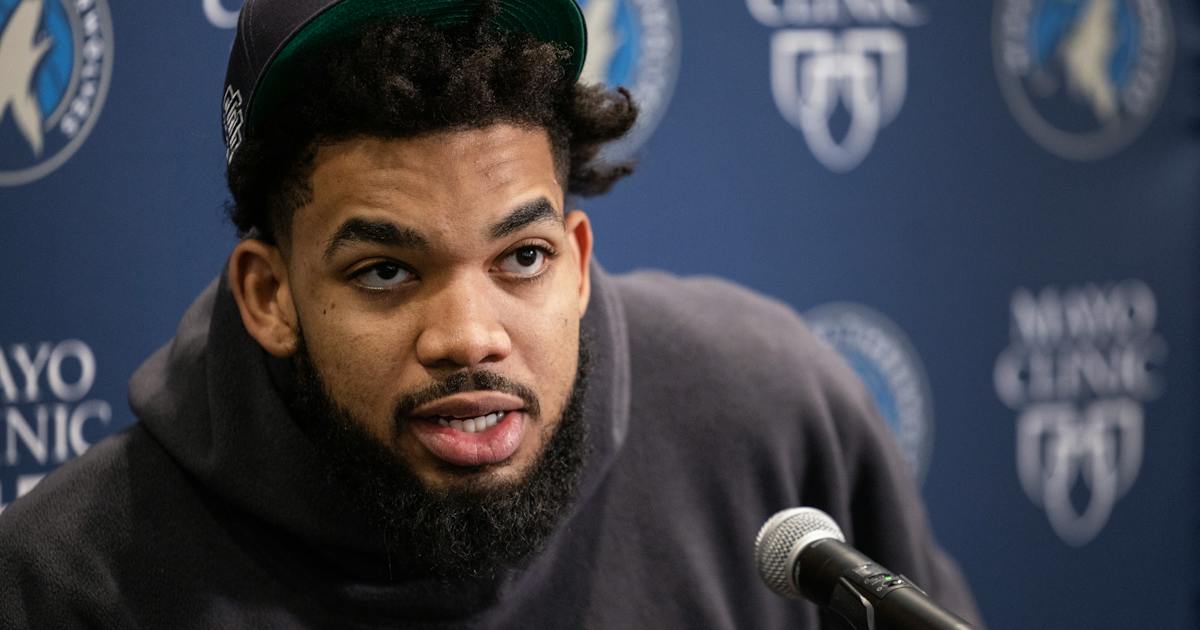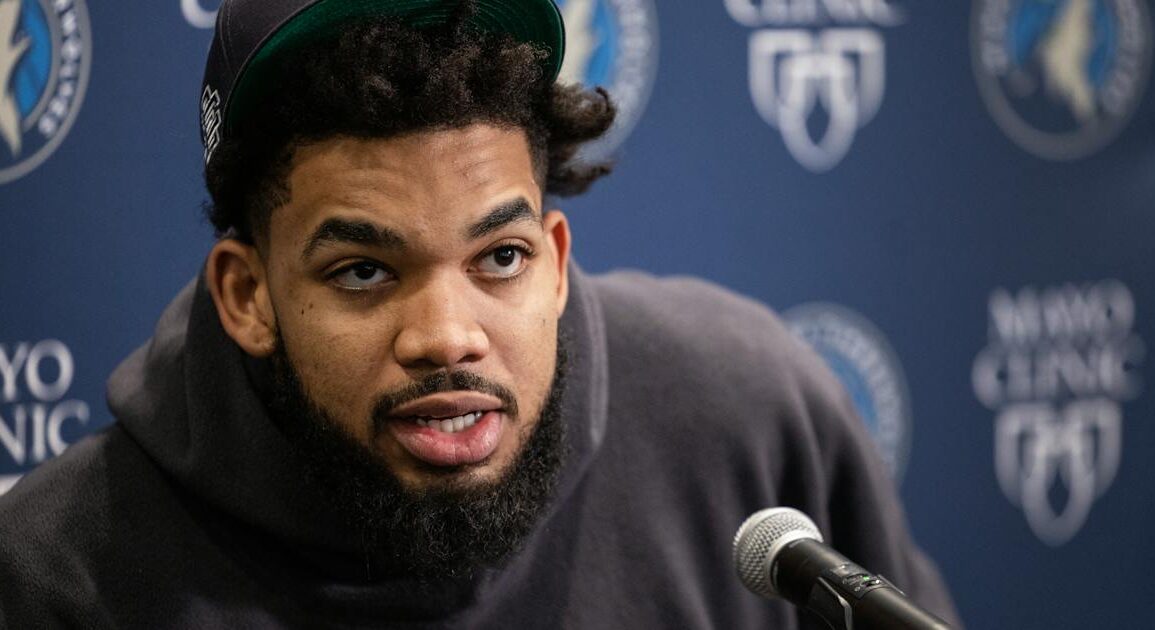
Over the summer, Timberwolves center Karl-Anthony Towns added a new line to his résumé — film producer.
But the project wasn’t a multimillion-dollar blockbuster or a lighthearted comedy. Instead, the Timberwolves center lent his time and financial resources to a short documentary film, “Forgiving Johnny,” which examines the ways technology can help those with developmental disabilities who are trapped in the criminal justice system when they might have a recourse out of it.
Towns became a producer on the film, which is directed by Academy Award winner Ben Proudfoot, in connection with Publicis Sapient, a digital business transformation company.
The film follows the story of Johnny Reyes, a Los Angeles resident with developmental disabilities who faced up to 20 years in prison following an altercation with his brother-in-law, and his public defender, Noah Cox, who tried to navigate the complexities of the legal system to get Reyes’ case dismissed through a diversion program in California.
To do so, Cox needed to access several digital records to make Reyes’ case for diversion. The film also touches on family and the virtue of forgiveness. The Wolves recently held a screening of the film at their facility with Towns and Teresa Barreira, the chief marketing officer of Publicis Sapient.
“In the new world we live in, technology most of the time is used for bad reasons. We wanted to show the effectiveness of allowing technology to work for us and not us work for technology. That’s an important thing in this film to learn,” Towns said. “Everyone deserves forgiveness. It just takes the person, themselves, to have the grace and the strength to be willing to accept it or also give it.”
The film came across Towns’ radar through his association with Creative Artists Agency, and it’s the latest project to come forth in Towns’ years-long commitment to promoting causes that address social injustice and inequality. Even though the movie is centered in Los Angeles, the messages in it can be universal and fit themes Towns has applied in other areas in his charity work.
He has been a part of the NBA’s Social Justice Coalition and recently helped the group campaign for Congressional passage of the George Floyd Justice in Policing Act. He also advocated for the restoration of voting rights to those who have served prison sentences, the so-called “Restore the Vote” act, which Gov. Tim Walz signed into law in March.
“I just feel like I’ve seen with Philando Castile and George Floyd here, I’ve always wanted to instill myself in the community here in Minnesota and Minneapolis,” Towns said. “But I want to be as effective as possible. Use my platform for as much good as I possibly can, and unfortunately evils have shown me where I’d be needed the most in this community.”
That’s a commitment he always has had to the Twin Cities and Minnesota at large. It’s a bond Towns, a New Jersey native, will likely have with the place he has called home through nine NBA seasons, no matter where his career may take him in future years. It’s a commitment he hasn’t wavered on even amid personal pain.
For instance, shortly after his mom, Jacqueline, died from COVID in 2020, Towns was attending rallies in support of justice for Floyd following Floyd’s murder at the hands of former police officer Derek Chauvin in May of that year.
“I’ve grown with the community,” Towns said. “It’s seen my mother’s last breaths. It’s seen me as a young kid. It’s seen me evolve to the man I am today. It’s kept me alive. So I guess I’m trying to reciprocate the love. As a man of color, I’ve seen the things that have happened here.”
There’s a theme that has run through Towns’ activism and through the film of “Forgiving Johnny.” It can be a peek into one of his life tenets — seeing the good and humanity in people when others might not.
“That comes from my mother,” Towns said. “At her funeral I talked about how she was the one who truly taught me love, and in love you know that you may not get the results you’re looking for, but you have to be willing to give yourself up to have a chance to experience love.”
That’s present in the film, as the Reyes family comes to terms with what happened before and after an incident that had a deep impact on their family — even after they cleared the legal hurdles.
“The ability to forgive, Karl said it very beautifully, there’s grace in it,” Barreira said.
Towns’ work has shown him that change is an incremental thing, that persuading governments or systems to change can be a slow-moving process. That in order to see the fruits of one’s work, one must be committed to causes for the long haul. That’s what Towns has done for nearly a decade in Minnesota, and that won’t stop any time soon.
“If I’ve learned anything in this process, it’s that you can’t let ‘nos’ deter you from what you do,” he said, “because you’re going to get a lot of them and that’s why we celebrate the ones we get the ‘yeses’ on because it’s deserved. There’s a lot of work that goes into getting that yes.”
This post was originally published on this site be sure to check out more of their content.







